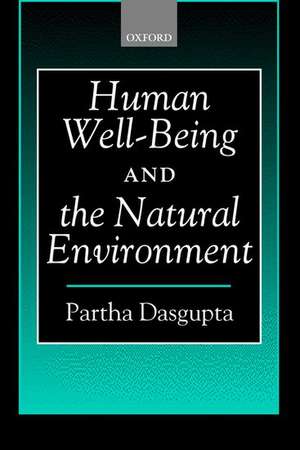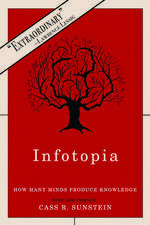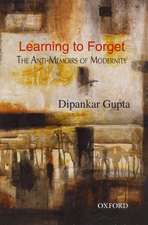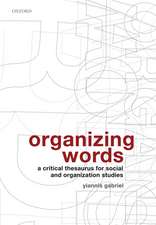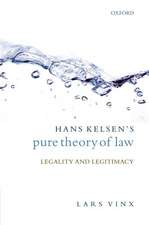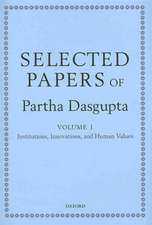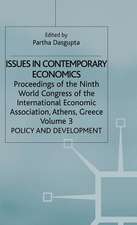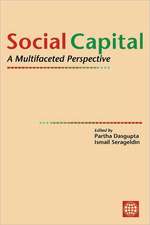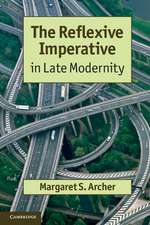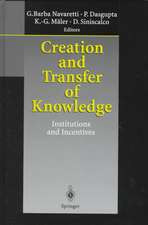Human Well-Being and the Natural Environment
Autor Partha Dasguptaen Limba Engleză Hardback – 14 noi 2001
| Toate formatele și edițiile | Preț | Express |
|---|---|---|
| Paperback (1) | 339.90 lei 31-37 zile | |
| OUP OXFORD – 18 mar 2004 | 339.90 lei 31-37 zile | |
| Hardback (1) | 629.36 lei 31-37 zile | |
| OUP OXFORD – 14 noi 2001 | 629.36 lei 31-37 zile |
Preț: 629.36 lei
Preț vechi: 897.72 lei
-30% Nou
Puncte Express: 944
Preț estimativ în valută:
120.44€ • 125.03$ • 100.43£
120.44€ • 125.03$ • 100.43£
Carte tipărită la comandă
Livrare economică 14-20 martie
Preluare comenzi: 021 569.72.76
Specificații
ISBN-13: 9780199247882
ISBN-10: 0199247889
Pagini: 328
Ilustrații: 3 figures
Dimensiuni: 163 x 242 x 23 mm
Greutate: 0.62 kg
Ediția:New.
Editura: OUP OXFORD
Colecția OUP Oxford
Locul publicării:Oxford, United Kingdom
ISBN-10: 0199247889
Pagini: 328
Ilustrații: 3 figures
Dimensiuni: 163 x 242 x 23 mm
Greutate: 0.62 kg
Ediția:New.
Editura: OUP OXFORD
Colecția OUP Oxford
Locul publicării:Oxford, United Kingdom
Recenzii
Partha Dasgupta is a very highly regarded economic theorist, and this book shows why. Dasgupta writes more clearly, and in a more acessible manner than most highly regarded economic theorists ... this book has much to recommend it ... elegant and incisive analysis.
A very interesting and stimulating book.
Exemplary exposition of the environment's role in fostering socio-economic advance as part of human well-being ... enlightening from start to finish.
Building on his classic magnum opus ... Partha Dasgupta has joined this rethink in an intellectually rich, thought-provoking and occasionally metaphysical work. His new book probes many issues beyond those that might be anticipated from the title and confirms his position as one of the most exciting economic thinkers today ... we can ask why so many feel we need reforms in ethical behaviour to ensure sustainability. Dasgupta touches on some of the framework needed to answer this question. More is needed. If anyone is going to supply it is is likely to be Dasgupta.
Concepts like GDP focus on easily measurable things, whilst omitting ecosystem services and other environmental factors on which life ultimately depends. Partha Dasgupta is a seminal figure in his discipline, taking on the difficult, yet hugely important, task of trying meaningfully to measure ''quality of life''. This book will, I hope, set the tone for the new millennium, melding conventional economic concepts, ecological and environmental science, and a great deal of plain commonsense. Read it.
A very interesting and stimulating book.
Exemplary exposition of the environment's role in fostering socio-economic advance as part of human well-being ... enlightening from start to finish.
Building on his classic magnum opus ... Partha Dasgupta has joined this rethink in an intellectually rich, thought-provoking and occasionally metaphysical work. His new book probes many issues beyond those that might be anticipated from the title and confirms his position as one of the most exciting economic thinkers today ... we can ask why so many feel we need reforms in ethical behaviour to ensure sustainability. Dasgupta touches on some of the framework needed to answer this question. More is needed. If anyone is going to supply it is is likely to be Dasgupta.
Concepts like GDP focus on easily measurable things, whilst omitting ecosystem services and other environmental factors on which life ultimately depends. Partha Dasgupta is a seminal figure in his discipline, taking on the difficult, yet hugely important, task of trying meaningfully to measure ''quality of life''. This book will, I hope, set the tone for the new millennium, melding conventional economic concepts, ecological and environmental science, and a great deal of plain commonsense. Read it.
Notă biografică
Partha Dasgupta is the Frank Ramsey Professor of Economics at the University of Cambridge and Fellow of St. John's College, Cambridge. A Past President of the Royal Economic Society and of the European Economic Association, Professor Dasgupta is a Fellow of the British Academy, Member of the Pontifical Academy of Social Sciences, Foreign Member of the Royal Swedish Academy of Sciences, and Foreign Associate of the US National Academy of Sciences. His publications include An Inquiry into Well-Being and Destitution (Clarendon Press, Oxford, 1993).
